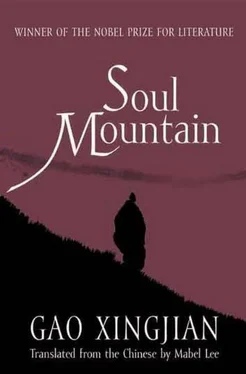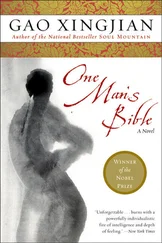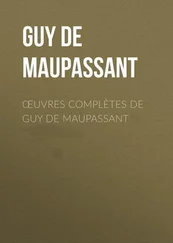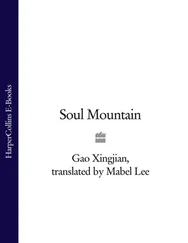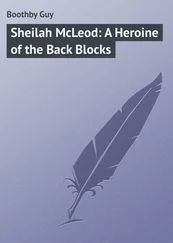On the highway from Tunqi to Anqing, I pass through Shitai. At the food stall by the bus stop, I encounter a peasant who had lost a hand. He says he chopped it off himself after it had been bitten by a Qichun snake. He is one of the rare cases of someone surviving an attack. The soft straw hat he is wearing is woven from the pith of the rice-paper plant, it is a dress hat with a narrow rim. This type of hat is normally worn only by peasants who work the wharves, and peasants who wear these hats generally have seen a lot and know a lot. I order a bowl of soup noodles at the stall under the white cotton awning by the highway. The peasant is sitting opposite and holding his chopsticks in his left hand. The stump of his right arm keeps swaying in front of me and makes eating difficult. I correctly guess he might like to chat.
“Older brother,” I ask him, “I’ve paid for your bowl of noodles along with mine. If you wouldn’t mind, could you tell me how you injured your arm?”
He then starts to tell me about what had happened. He says he had gone into the mountains to look for Qi wood.
“Look for what?”
“Qi wood — eating it prevents jealousy. That wife of mine really drives me crazy, if another woman so much as says one sentence to me she starts throwing bowls about. I went to get Qi wood to brew a soup for her.”
“Is this Qi wood a folk prescription?” I ask.
“No.” Beneath the dress hat woven from the pith of the rice-paper plant, his big mouth opens wide, showing one gold tooth as he chuckles. It is then that I realize he is having me on.
He says a few of them had gone to chop trees to burn charcoal, at that time it was not like it is nowadays when doing business is all the fashion. If mountain people wanted to get an extra bit of spending money most of them went in for burning charcoal. You could steal timber and sell it for a profit but the timber was under the surveillance of the people in the production brigade and if you were caught it was a criminal offence. He didn’t go in for doing things that were illegal. But even with burning charcoal, you had to know how to make it. He only went after white oak: the charcoal burns with a silver flame and it produces a metallic ring when you strike it. If you can produce it, a basket of this metallic charcoal will fetch double the price. I let him talk on, in any case it was the price of a bowl of noodles.
He says he was holding an axe and walking on ahead while his friends were still smoking and chatting down below. He had just bent down when he felt a cold chill rise from the soles of his feet and he knew instantly something was wrong. He says men are the same as dogs. If a dog out on its own sniffs a leopard it will stop in its tracks so scared that it will whimper like a kitten. He says at the time his legs just went soft: no matter how tough a man is, if he encounters a Qichun snake, that’s the end of him. And right there, he saw this thing coiled on a rock under the branches of a chaste tree, it was mostly grey and drawn almost into a ball, in the middle of which was this head sticking up. Faster than it would take to say it, he chopped at it but instantly his hand turned ice cold and a jarring spasm went right through his body as if he’d had an electric shock. Everything went black before his eyes, even the sun became dark, it was eerie. The sound of the wind, birds and insects vanished, the colour of the gloomy sky darkened and the sun and the trees glowed with a chilly light. Maybe it was because his brain was still working, or that he was fast, or that he wasn’t meant to die or that he was lucky that he took the axe in his left hand and chopped off his right hand. Then holding his back rigid in a qigong stance, he went down on his haunches and pressed his left thumb onto the artery of his right arm above the elbow. He says the blood which gushed out sizzled on the stones, immediately lost its redness, and turned into a pale yellow froth! Afterwards, his friends carried him back to the village. They also brought back the hand he’d chopped off. It had turned black: the fingernails, skin and flesh were black and streaked with purple. What remained of his arm also started turning black and it was only by using every sort of snake antidote that the poison was arrested.
I say, “You’re really strong-minded.”
He says if he’d baulked or that he’d been bitten an inch or so higher, he’d have been dead. “To lose a hand to save one’s life, how could I quibble over it? Even a praying mantis will shed a claw to save itself.”
“But it’s an insect,” I say.
“So what if it’s an insect? Humans can’t be inferior to insects. Foxes have bitten off a leg to get out of a trap, surely humans can’t be less intelligent than foxes.” He slaps a ten yuan note on the table, he doesn’t want me to pay for his noodles. He says he’s doing some buying and selling now and isn’t making less than an educated person like me.
I keep watching out for Qichun snakes as I go on my journey, then on the road to Fanjing Mountain, in a village called Wenxiao or Shichang, I see dried Qichun snakes tied in coils in the ceiling drying area of a trading depot. They were just as the Tang Dynasty scholar Liu Zongyuan had described them: “Black body with a white pattern.” This is a valuable Chinese medicine which is highly effective for relaxing muscular tension, aiding blood circulation, getting rid of rheumatism, and getting rid of colds. It fetches a high price so there are always brave fellows willing to risk their lives for it.
Liu Zongyuan considered this thing to be more dangerous than a tiger and went on to talk about harsh governments being more savage than tigers. He was a provincial governor whereas I am one of the common people. He was a scholar-official and in his lifetime he put worrying about the concerns of the world first, whereas I am wandering everywhere concerned only with my own life.
Just seeing these processed coils of dried snake isn’t enough, I am keen to see a live one, to know how to identify it, so that I will know how to guard against it.
It is not until I reach the foot of Fanjing Mountain, the kingdom of this snake, that I see two of them. They had been confiscated from poachers and were kept in a wire cage at a ranger inspection station on the reserve. I finally get a proper look at them.
The scientific name is the beaked Pallas pit viper. Both are more than two metres long, not as thick as a small wrist but with a small tail section which is thinner. The body is a nondescript grey-brown with a grey-white triangular pattern, so it also has the common name of chessboard snake. They don’t appear dangerous, and coiled on a rock would just look like a clump of soil. But if one looks closely, the rough dull brown triangular head has a scaly upturned-hook beak and a pair of small, pitiful, and lacklustre eyes. It has a comical greedy look reminiscent of the clownish Seventh Rank Sesame Official in traditional opera. However it doesn’t rely on its eyes to attack its prey. Between the eyes and the nostrils is an indentation which is a unique temperature sensor. This is sensitive to infra-red rays and can detect temperature changes to one-twentieth of a degree within a radius of three metres. If an animal with a body temperature higher than its own approaches, it can stalk and attack it with precision. I learn all about this from a snake-bite researcher on the reserve afterwards when I go to Wuyi Mountain.
It is also on this road, in the upper reaches of the Chen River tributary of the Yuan River, in the still unpolluted and abundant flow of the Jin River, that the water is limpid. The boy cowherders pissing in the water are swept off by the fast-flowing current and are screaming. It is several hundred metres before they are hauled up onto the river-bank: the sounds carry clearly. Below the highway, a young girl is bathing naked at the water’s edge. When she sees vehicles drive past on the highway, she stands there like a white egret, moving only her neck to stare. In the strong noon sun, the sunlight on the water is dazzling. Of course all this has nothing much to do with Qichun snakes.
Читать дальше
Конец ознакомительного отрывка
Купить книгу
